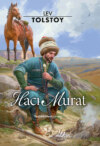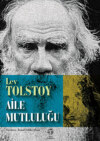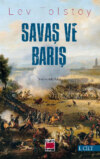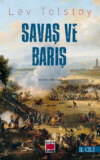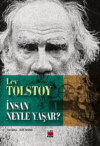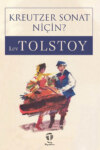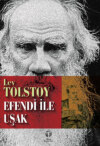Kitabı oku: ««The Kingdom of God Is Within You». Christianity Not as a Mystic Religion but as a New Theory of Life», sayfa 17
And this criticism would be perfectly just, if the transition from one conception of life to another were only accomplished by the single process of all men, separately and successively, realizing, each for himself, the emptiness of power, and reaching Christian truth by the inner spiritual path. That process goes on unceasingly, and men are passing over to Christianity one after another by this inner way.
But there is also another external means by which men reach Christianity and by which the transition is less gradual.
This transition from one organization of life to another is not accomplished by degrees like the sand running through the hourglass grain after grain. It is more like the water filling a vessel floating on water. At first the water only runs in slowly on one side, but as the vessel grows heavier it suddenly begins to sink, and almost instantaneously fills with water.
It is just the same with the transitions of mankind from one conception – and so from one organization of life – to another. At first only gradually and slowly, one after another, men attain to the new truth by the inner spiritual way, and follow it out in life. But when a certain point in the diffusion of the truth has been reached, it is suddenly assimilated by everyone, not by the inner way, but, as it were, involuntarily.
That is why the champions of the existing order are wrong in arguing that, since only a small section of mankind has passed over to Christianity in eighteen centuries, it must be many times eighteen centuries before all the remainder do the same. For in that argument they do not take into account any other means, besides the inward spiritual one, by which men assimilate a new truth and pass from one order of life to another.
Men do not only assimilate a truth through recognizing it by prophetic insight, or by experience of life. When the truth has become sufficiently widely diffused, men at a lower stage of development accept it all at once simply through confidence in those who have reached it by the inner spiritual way, and are applying it to life.
Every new truth, by which the order of human life is changed and humanity is advanced, is at first accepted by only a very small number of men who understand it through inner spiritual intuition. The remainder of mankind who accepted on trust the preceding truth on which the existing order is based, are always opposed to the diffusion of the new truth.
But seeing that, to begin with, men do not stand still, but are steadily advancing to a greater recognition of the truth and a closer adaptation of their life to it, and secondly, all men in varying degrees according to their age, their education, and their race are capable of understanding the new truths, at first those who are nearest to the men who have attained the new truth by spiritual intuition, slowly and one by one, but afterward more and more quickly, pass over to the new truth. Thus the number of men who accept the new truth becomes greater and greater, and the truth becomes more and more comprehensible.
And thus more confidence is aroused in the remainder, who are at a less advanced stage of capacity for understanding the truth. And it becomes easier for them to grasp it, and an increasing number accept it.
And so the movement goes on more and more quickly, and on an ever-increasing scale, like a snowball, till at last a public opinion in harmony with the new truth is created, and then the whole mass of men is carried over all at once by its momentum to the new truth and establishes a new social order in accordance with it.
Those men who accept a new truth when it has gained a certain degree of acceptance, always pass over all at once in masses. They are like the ballast with which every ship is always loaded, at once to keep it upright and enable it to sail properly. If there were no ballast, the ship would not be low enough in the water, and would shift its position at the slightest change in its conditions. This ballast, which strikes one at first as superfluous and even as hindering the progress of the vessel, is really indispensable to its good navigation.
It is the same with the mass of mankind, who not individually, but always in a mass, under the influence of a new social idea pass all at once from one organization of life to another. This mass always hinders, by its inertia, frequent and rapid revolutions in the social order which have not been sufficiently proved by human experience. And it delays every truth a long while till it has stood the test of prolonged struggles, and has thoroughly permeated the consciousness of humanity.
And that is why it is a mistake to say that because only a very small minority of men has assimilated Christianity in eighteen centuries, it must take many times as many centuries for all mankind to assimilate it, and that since that time is so far off, we who live in the present need not even think about it. It is a mistake, because the men at a lower stage of culture, the men and the nations who are represented as the obstacle to the realization of the Christian order of life, are the very people who always pass over in masses all at once to any truth that has once been recognized by public opinion.
And therefore the transformation of human life, through which men in power will renounce it, and there will be none anxious to take their place, will not come only by all men consciously and separately assimilating the Christian conception of life. It will come when a Christian public opinion has arisen, so definite and easily comprehensible as to reach the whole of the inert mass, which is not able to attain truth by its own intuition, and therefore is always under the sway of public opinion.
Public opinion arises spontaneously and spreads for hundreds and thousands of years, but it has the power of working on men by infection, and with great rapidity gains a hold on great numbers of men.
"But," say the champions of the existing order, "even if it is true that public opinion, when it has attained a certain degree of definiteness and precision, can convert the inert mass of men outside the Christian world – the non-Christian races – as well as the coarse and depraved who are living in its midst, what proofs have we that this Christian public opinion has arisen and is able to replace force and render it unnecessary.
"We must not give up force, by which the existing order is maintained, and by relying on the vague and impalpable influence of public opinion expose Christians to the risk of being pillaged, murdered, and outraged in every way by the savages inside and outside of civilized society.
"Since, even supported by the use of force, we can hardly control the non-Christian elements which are always ready to pour down on us and to destroy all that has been gained by civilization, is it likely that public opinion could take the place of force and render us secure? And besides, how are we to find the moment when public opinion has become strong enough to be able to replace the use of force? To reject the use of force and trust to public opinion to defend us would be as insane as to remove all weapons of defense in a menagerie, and then to let loose all the lions and tigers, relying on the fact that the animals seemed peaceable when kept in their cages and held in check by red-hot irons. And therefore people in power, who have been put in positions of authority by fate or by God, have not the right to run the risk, ruining all that has been gained by civilization, just because they want to try an experiment to see whether public opinion is or is not able to replace the protection given by authority."
A French writer, forgotten now, Alphonse Karr, said somewhere, trying to show the impossibility of doing away with the death penalty: "Que messieurs les assassins commencent par nous donner l'exemple." Often have I heard this bon mot repeated by men who thought that these words were a witty and convincing argument against the abolition of capital punishment. And yet all the erroneousness of the argument of those who consider that governments cannot give up the use of force till all people are capable of doing the same, could not be more clearly expressed than it is in that epigram.
"Let the murderers," say the champions of state violence, "set us the example by giving up murder and then we will give it up." But the murderers say just the same, only with much more right. They say: "Let those who have undertaken to teach us and guide us set us the example of giving up legal murder, and then we will imitate them." And they say this, not as a jest, but seriously, because it is the actual state of the case.
"We cannot give up the use of violence, because we are surrounded by violent ruffians." Nothing in our days hinders the progress of humanity and the establishment of the organization corresponding to its present development more than this false reasoning. Those in authority are convinced that men are only guided and only progress through the use of force, and therefore they confidently make use of it to support the existing organization. The existing order is maintained, not by force, but by public opinion, the action of which is disturbed by the use of force. So that the effect of using force is to disturb and to weaken the very thing it tries to maintain.
Violence, even in the most favorable case, when it is not used simply for some personal aims of those in power, always punishes under the one inelastic formula of the law what has long before been condemned by public opinion. But there is this difference, that while public opinion censures and condemns all the acts opposed to the moral law, including the most varied cases in its reprobation, the law which rests on violence only condemns and punishes a certain very limited range of acts, and by so doing seems to justify all other acts of the same kind which do not come under its scope.
Public opinion ever since the time of Moses has regarded covetousness, profligacy, and cruelty as wrong, and censured them accordingly. And it condemns every kind of manifestation of covetousness, not only the appropriation of the property of others by force or fraud or trickery, but even the cruel abuse of wealth; it condemns every form of profligacy, whether with concubine, slave, divorced woman, or even one's own wife; it condemns every kind of cruelty, whether shown in blows, in ill-treatment, or in murder, not only of men, but even of animals. The law resting on force only punishes certain forms of covetousness, such as robbery and swindling, certain forms of profligacy and cruelty, such as conjugal infidelity, murder, and wounding. And in this way it seems to countenance all the manifestations of covetousness, profligacy, and cruelty which do not come under its narrow definition.
But besides corrupting public opinion, the use of force leads men to the fatal conviction that they progress, not through the spiritual impulse which impels them to the attainment of truth and its realization in life, and which constitutes the only source of every progressive movement of humanity, but by means of violence, the very force which, far from leading men to truth, always carries them further away from it. This is a fatal error, because it leads men to neglect the chief force underlying their life – their spiritual activity – and to turn all their attention and energy to the use of violence, which is superficial, sluggish, and most generally pernicious in its action.
They make the same mistake as men who, trying to set a steam engine in motion, should turn its wheels round with their hands, not suspecting that the underlying cause of its movement was the expansion of the steam, and not the motion of the wheels. By turning the wheels by hand and by levers they could only produce a semblance of movement, and meantime they would be wrenching the wheels and so preventing their being fit for real movement.
That is just what people are doing who think to make men advance by means of external force.
They say that the Christian life cannot be established without the use of violence, because there are savage races outside the pale of Christian societies in Africa and in Asia (there are some who even represent the Chinese as a danger to civilization), and that in the midst of Christian societies there are savage, corrupt, and, according to the new theory of heredity, congenital criminals. And violence, they say, is necessary to keep savages and criminals from annihilating our civilization.
But these savages within and without Christian society, who are such a terror to us, have never been subjugated by violence, and are not subjugated by it now. Nations have never subjugated other nations by violence alone. If a nation which subjugated another was on a lower level of civilization, it has never happened that it succeeded in introducing its organization of life by violence. On the contrary, it was always forced to adopt the organization of life existing in the conquered nation. If ever any of the nations conquered by force have been really subjugated, or even nearly so, it has always been by the action of public opinion, and never by violence, which only tends to drive a people to further rebellion.
When whole nations have been subjugated by a new religion, and have become Christian or Mohammedan, such a conversion has never been brought about because the authorities made it obligatory (on the contrary, violence has much oftener acted in the opposite direction), but because public opinion made such a change inevitable. Nations, on the contrary, who have been driven by force to accept the faith of their conquerors have always remained antagonistic to it.
It is just the same with the savage elements existing in the midst of our civilized societies. Neither the increased nor the diminished severity of punishment, nor the modifications of prisons, nor the increase of police will increase or diminish the number of criminals. Their number will only be diminished by the change of the moral standard of society. No severities could put an end to duels and vendettas in certain districts. In spite of the number of Tcherkesses executed for robbery, they continue to be robbers from their youth up, for no maiden will marry a Tcherkess youth till he has given proof of his bravery by carrying off a horse, or at least a sheep. If men cease to fight duels, and the Tcherkesses cease to be robbers, it will not be from fear of punishment (indeed, that invests the crime with additional charm for youth), but through a change in the moral standard of public opinion. It is the same with all other crimes. Force can never suppress what is sanctioned by public opinion. On the contrary, public opinion need only be in direct opposition to force to neutralize the whole effect of the use of force. It has always been so and always will be in every case of martyrdom.
What would happen if force were not used against hostile nations and the criminal elements of society we do not know. But we do know by prolonged experience that neither enemies nor criminals have been successfully suppressed by force.
And indeed how could nations be subjugated by violence who are led by their whole education, their traditions, and even their religion to see the loftiest virtue in warring with their oppressors and fighting for freedom? And how are we to suppress by force acts committed in the midst of our society which are regarded as crimes by the government and as daring exploits by the people?
To exterminate such nations and such criminals by violence is possible, and indeed is done, but to subdue them is impossible.
The sole guide which directs men and nations has always been and is the unseen, intangible, underlying force, the resultant of all the spiritual forces of a certain people, or of all humanity, which finds its outward expression in public opinion.
The use of violence only weakens this force, hinders it and corrupts it, and tries to replace it by another which, far from being conducive to the progress of humanity, is detrimental to it.
To bring under the sway of Christianity all the savage nations outside the pale of the Christian world – all the Zulus, Mandchoos, and Chinese, whom many regard as savages – and the savages who live in our midst, there is only one means. That means is the propagation among these nations of the Christian ideal of society, which can only be realized by a Christian life, Christian actions, and Christian examples. And meanwhile, though this is the one only means of gaining a hold over the people who have remained non-Christian, the men of our day set to work in the directly opposite fashion to attain this result.
To bring under the sway of Christianity savage nations who do not attack us and whom we have therefore no excuse for oppressing, we ought before all things to leave them in peace, and in case we need or wish to enter into closer relations with them, we ought only to influence them by Christian manners and Christian teaching, setting them the example of the Christian virtues of patience, meekness, endurance, purity, brotherhood, and love. Instead of that we begin by establishing among them new markets for our commerce, with the sole aim of our own profit; then we appropriate their lands, i. e., rob them; then we sell them spirits, tobacco, and opium, i. e., corrupt them; then we establish our morals among them, teach them the use of violence and new methods of destruction, i. e., we teach them nothing but the animal law of strife, below which man cannot sink, and we do all we can to conceal from them all that is Christian in us. After this we send some dozens of missionaries prating to them of the hypocritical absurdities of the Church, and then quote the failure of our efforts to turn the heathen to Christianity as an incontrovertible proof of the impossibility of applying the truths of Christianity in practical life.
It is just the same with the so-called criminals living in our midst. To bring these people under the sway of Christianity there is one only means, that is, the Christian social ideal, which can only be realized among them by true Christian teaching and supported by a true example of the Christian life. And to preach this Christian truth and to support it by Christian example we set up among them prisons, guillotines, gallows, preparations for murder; we diffuse among the common herd idolatrous superstitions to stupefy them; we sell them spirits, tobacco, and opium to brutalize them; we even organize legalized prostitution; we give land to those who do not need it; we make a display of senseless luxury in the midst of suffering poverty; we destroy the possibility of anything like a Christian public opinion, and studiously try to suppress what Christian public opinion is existing. And then, after having ourselves assiduously corrupted men, we shut them up like wild beasts in places from which they cannot escape, and where they become still more brutalized, or else we kill them. And these very men whom we have corrupted and brutalized by every means, we bring forward as a proof that one cannot deal with criminals except by brute force.
We are just like ignorant doctors who put a man, recovering from illness by the force of nature, into the most unfavorable conditions of hygiene, and dose him with the most deleterious drugs, and then assert triumphantly that their hygiene and their drugs saved his life, when the patient would have been well long before if they had left him alone.
Violence, which is held up as the means of supporting the Christian organization of life, not only fails to produce that effect, it even hinders the social organization of life from being what it might and ought to be. The social organization is as good as it is not as a result of force, but in spite of it.
And therefore the champions of the existing order are mistaken in arguing that since, even with the aid of force, the bad and non-Christian elements of humanity can hardly be kept from attacking us, the abolition of the use of force and the substitution of public opinion for it would leave humanity quite unprotected.
They are mistaken, because force does not protect humanity, but, on the contrary, deprives it of the only possible means of really protecting itself, that is, the establishment and diffusion of a Christian public opinion. Only by the suppression of violence will a Christian public opinion cease to be corrupted, and be enabled to be diffused without hindrance, and men will then turn their efforts in the spiritual direction by which alone they can advance.
"But how are we to cast off the visible tangible protection of an armed policeman, and trust to something so intangible as public opinion? Does it yet exist? Moreover, the condition of things in which we are living now, we know, good or bad; we know its shortcomings and are used to it, we know what to do, and how to behave under present conditions. But what will happen when we give it up and trust ourselves to something invisible and intangible, and altogether unknown?"
The unknown world on which they are entering in renouncing their habitual ways of life appears itself as dreadful to them. It is all very well to dread the unknown when our habitual position is sound and secure. But our position is so far from being secure that we know, beyond all doubt, that we are standing on the brink of a precipice.
If we must be afraid let us be afraid of what is really alarming, and not what we imagine as alarming.
Fearing to make the effort to detach ourselves from our perilous position because the future is not fully clear to us, we are like passengers in a foundering ship who, through being afraid to trust themselves to the boat which would carry them to the shore, shut themselves up in the cabin and refuse to come out of it; or like sheep, who, terrified by their barn being on fire, huddle in a corner and do not go out of the wide-open door.
We are standing on the threshold of the murderous war of social revolution, terrific in its miseries, beside which, as those who are preparing it tell us, the horrors of 1793 will be child's play. And can we talk of the danger threatening us from the warriors of Dahomey, the Zulus, and such, who live so far away and are not dreaming of attacking us, and from some thousands of swindlers, thieves, and murderers, brutalized and corrupted by ourselves, whose number is in no way lessened by all our sentences, prisons, and executions?
Moreover this dread of the suppression of the visible protection of the policeman is essentially a sentiment of townspeople, that is, of people who are living in abnormal and artificial conditions. People living in natural conditions of life, not in towns, but in the midst of nature, and carrying on the struggle with nature, live without this protection and know how little force can protect us from the real dangers with which we are surrounded. There is something sickly in this dread, which is essentially dependent on the artificial conditions in which many of us live and have been brought up.
A doctor, a specialist in insanity, told a story that one summer day when he was leaving the asylum, the lunatics accompanied him to the street door. "Come for a walk in the town with me?" the doctor suggested to them. The lunatics agreed, and a small band followed the doctor. But the further they proceeded along the street where healthy people were freely moving about, the more timid they became, and they pressed closer and closer to the doctor, hindering him from walking. At last they all began to beg him to take them back to the asylum, to their meaningless but customary way of life, to their keepers, to blows, strait waistcoats, and solitary cells.
This is just how men of to-day huddle in terror and draw back to their irrational manner of life, their factories, law courts, prisons, executions, and wars, when Christianity calls them to liberty, to the free, rational life of the future coming age.
People ask, "How will our security be guaranteed when the existing organization is suppressed? What precisely will the new organization be that is to replace it? So long as we do not know precisely how our life will be organized, we will not stir a step forward."
An explorer going to an unknown country might as well ask for a detailed map of the country before he would start.
If a man, before he passed from one stage to another, could know his future life in full detail, he would have nothing to live for. It is the same with the life of humanity. If it had a programme of the life which awaited it before entering a new stage, it would be the surest sign that it was not living, nor advancing, but simply rotating in the same place.
The conditions of the new order of life cannot be known by us because we have to create them by our own labors. That is all that life is, to learn the unknown, and to adapt our actions to this new knowledge.
That is the life of each individual man, and that is the life of human societies and of humanity.

